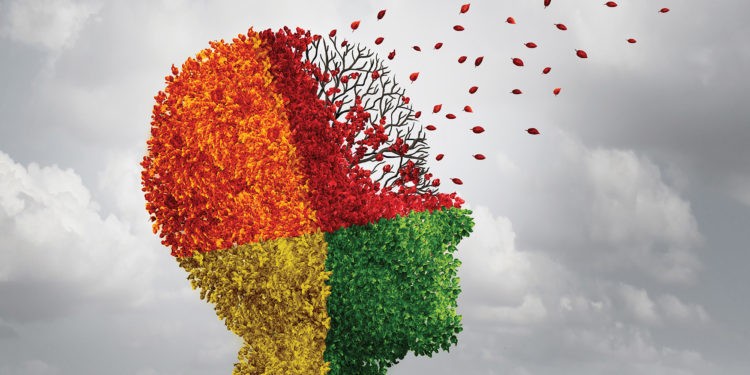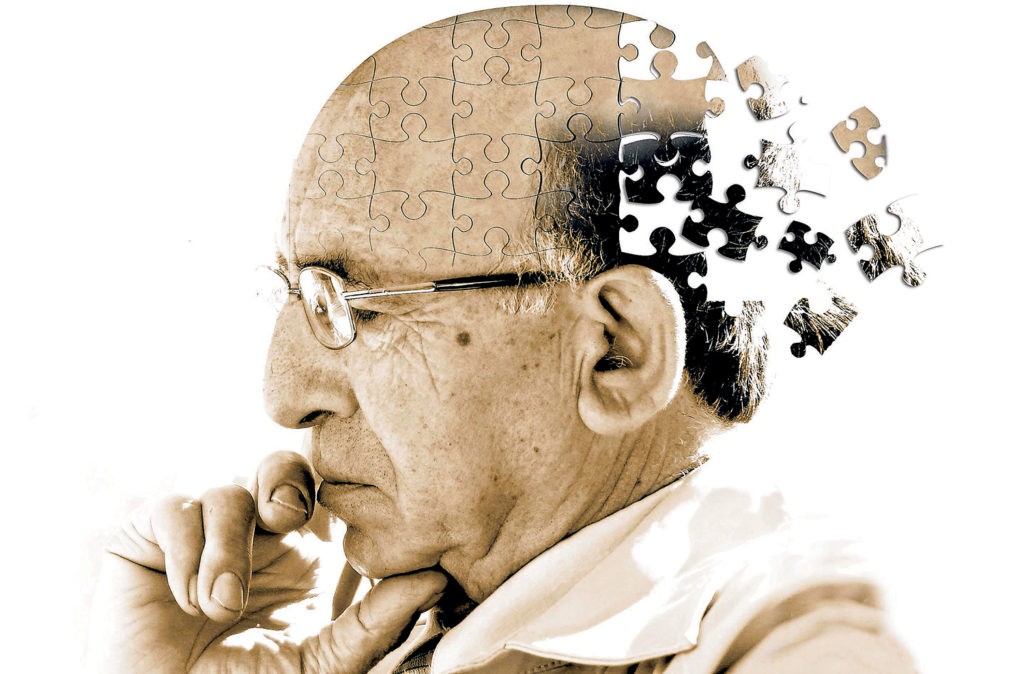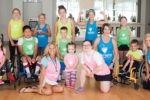Alzheimers

Culminating to a Cure?
Story by Lisa Taranto Butler
Just hearing the word Alzheimer’s can create angst. For those diagnosed, the feelings can be much more detrimental. Alzheimer’s can generate fear and anxiety for not only patients, but for their loved ones who realize their mother, brother or friend will never be the same.
One in three people over the age of 85 are suffering from Alzheimer’s, and 50 million people worldwide are affected. The disease is growing rapidly too, as the number of older adults increases. The National Institute on Aging says that the prevalence of Alzheimer’s disease doubles every five years after age 65.
The good news is that research continues to accelerate and the potential to end Alzheimer’s is very promising. Scientists, communities and federal funding are all partnering to find new treatments to slow, prevent and even cure Alzheimer’s while offering hope to patients and caregivers alike.
Battling as a Caregiver
Caring for a family member with Alzheimer’s can be extremely difficult, and some caregivers will experience anxiety and depression, especially as the disease progresses in their loved one. But a new program has caregivers and their patients looking toward hope.
START (STrAtegies for RelaTives) program, was developed in the UK and offers coping strategies for caregivers as well as support to manage their own wellbeing. The emphasis of the 8-week program relies on planning for the future and accessing additional support as needed. The program is given by psychology graduates, trained and supervised by a research team, making it easier to implement among different settings.
According to findings published in the British Journal of Psychiatry, caregivers who took part in the program were five times less likely to have clinically significant depression than those not doing therapy.
Coping as a Patient
Each person handles their diagnosis differently, and treatment is generally based on the stage of the disease and the goals of the patient and family. Developing efficient coping strategies can help patients remain active and engaged while maximizing independence.
Locally, the University of Kansas Alzheimer’s Disease Center (KU ADC), a National Institute of Aging and funded Alzheimer’s Disease Center is helping patients cope day-to-day with progressive medical clinic visits, education, research opportunities and clinical trials.
The center also offers their innovative LEAP! (Lifestyle Empowerment for Alzheimer’s Prevention) program that transforms the latest Alzheimer’s disease prevention research into helping people make everyday choices to prevent Alzheimer’s. LEAP! tactics aid patients in making positive, healthy and lasting behavioral changes that reduce their chances of getting Alzheimer’s, but also decreases the chances of getting other chronic diseases as well.
Scientists at KU ADC have received international attention for research on how various lifestyle factors, including fitness and physical activity affect Alzheimer’s disease. As if we need another reason to be consistent with exercise class or just getting to the gym, regular exercise is a beneficial strategy to lower the risk of Alzheimer’s and dementia. “Getting oxygen flow and blood to the brain” isn’t just something fitness trainers say to fill time, it is a definite plus to heighten our brain cells, gain cardio vascular benefits and cutback chances of cognitive decline.

Day-To-Day Strategies
For Alzheimer’s patients, experts recommend tips for daily living:
Be Realistic – Knowing limits and adjusting everyday expectations will go a long way
Pick and Choose Tasks – Focus on each task individually and give yourself enough time to complete it. If the task becomes too difficult, take a break and come back to it.
Daily Routine – Making a list of what you would like to accomplish each day will help limit obstacles and getting off track.
Recognize Triggers That May Cause Stress – being in a hurry, trying to do too much and pressure from caregivers can be overwhelming. Know when to take a break.
Use Your Squad – Family, friends, faith, pets, determination – all of these sources can make daily living easier and happier.
Evolving Tests
Most people aren’t even aware they have Alzheimer’s until the symptoms become obvious. Currently, brain scans are used for screening and this can be time consuming and expensive. Recently doctors found a way to measure levels of the protein amyloid-beta (a key indicator of Alzheimer’s) by doing a simple blood test. Using this measurement can help determine if a significant amount of the protein has accumulated in the brain which can lead to developing the disease.
By testing blood, some experts say they could screen more people, faster and cheaper than the current standard. And even better news – this means participants can enroll in clinical trials before too much damage has settled in the brain.
Finding A Cure
The horizon looks bright as far as Alzheimer’s research. Many experts believe that finding a cure is not a question anymore, but the real question is WHEN? Most experts feel a cure will be found within the next 10 years. Until then, we continue research, we help our loved ones deal with the many challenges, and we look toward the future.
Local Help
The Alzheimer’s Association – Heart of America Chapter
Provides information, education, training, support programs and more for families and caregivers
3846 W. 75th Street, Prairie Village, KS
913-831-3888 | www.alz.org/kansascity
Local Events
Walk to End Alzheimer’s
Sunday, Oct. 6, walk begins 9:15am
Corporate Woods – Overland Park
9401 Indian Creek Pkwy, Building #40
913-948-8649 or wswoopes@alz.org for more information
Lisa Taranto Butler is a freelance writer, certified wellness coach,
personal trainer and SilverSneakers® fitness Instructor.
She is the owner of FitChix KC in Leawood.
Sources: zmescience.com, alz.org, kualzheimer.org, healthline.com, forbes.com






